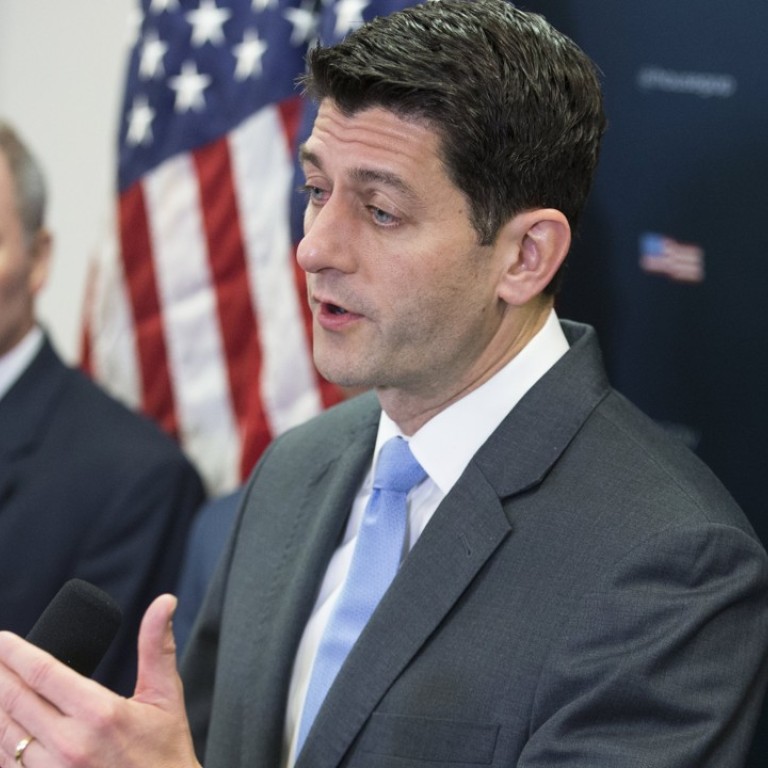
Paul Ryan says immigration talks on the cards as scramble for votes to avoid US shutdown is on
House Speaker Paul Ryan has said immigration is his ‘next priority’ after averting shutdown, but some Dems won’t vote in favour of funding without promises from him
As US lawmakers scramble to get the votes to pass a bill that will avoid a US shutdown, House Speaker Paul Ryan has attempted to mollify Democrat concern by saying that an immigration bill is the “next big priority”.
Leading House Democrat Nancy Pelosi has threatened to block the Bipartisan Budget Act of 2018 - which will provide funding for federal government beyond midnight tonight - if Ryan does not commit to a debate on the US immigrants temporarily protected by the DACA programme.
Ryan, a Republican, declined to make any promises Thursday, but did say that nobody should doubt his “intention to solve this problem and bring up a DACA and immigration reform bill.”
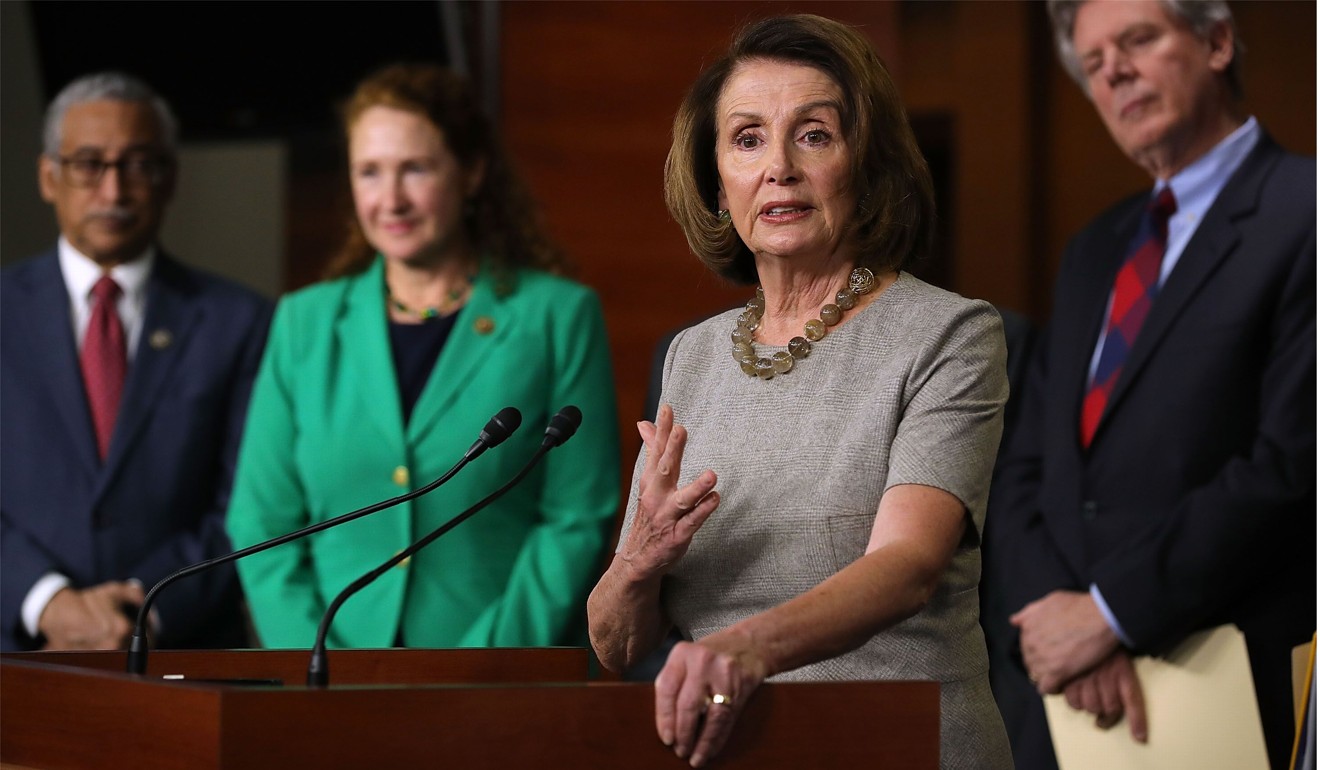
I’m pleased with the product, I’m not pleased with the process
Senators were expected to take up and pass the breakthrough bill later Thursday, and then send it to the House of Representatives - which will barely have time to debate it before government funding expires at midnight.
Although Republicans have a 238-193 majority in the House, the “Freedom Caucus”, which numbers about three dozen Republicans, announced they would oppose the accord because increases government spending by US$300 billion.
That means Ryan and his allies likely will have to rely on support from some Democrats - hence his carefully calibrated, decidedly unequivocal remarks.
Pelosi, 77, who spoke for an unprecedented eight hours about immigration in the House on Wednesday said on Thursday that the budget act was “a good bill” but that she would not vote for it without a firm commitment from Ryan.
“I’m pleased with the product, I’m not pleased with the process,” she said. Asked whether she’s pressing House Democrats to vote against it, she responded,
“I’m just telling people why I’m voting the way I’m voting.”
The House Democratic leadership team sent a notice to members, obtained by Bloomberg News, saying that the deal fails to provide a path to getting legislation that would protect young undocumented people from deportation and urging them to vote against it.
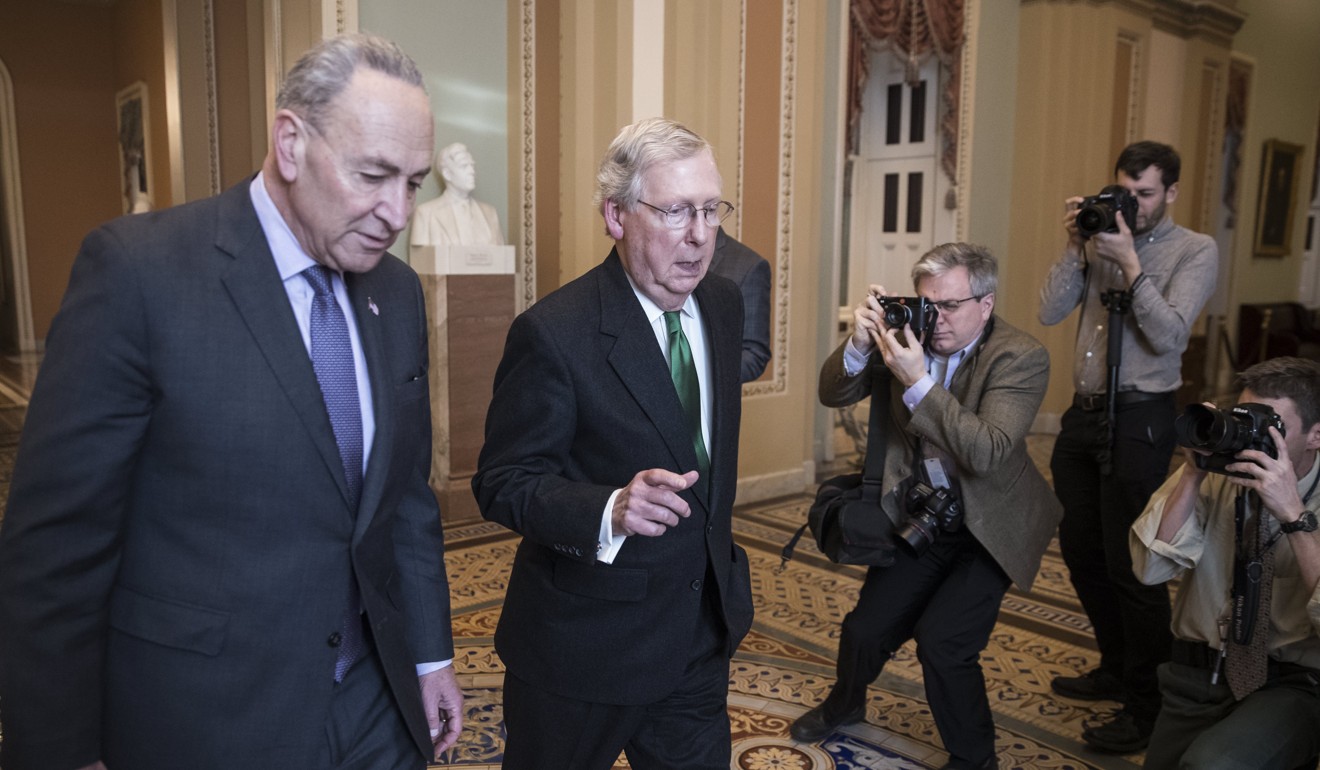
It’s going to need bipartisan support. We [Republicans] are going to deliver our share of support
DACA - or Deferred Action for Childhood Arrivals - was created by Barack Obama to provide protection for immigrants brought into the US as children, many of whom did not know they were illegal until they became adults, and some of whom have served in the US military.
US President Donald Trump has refused to renew DACA, leaving 700,000 such immigrants - or “Dreamers” - at risk of deportation by the end of March.
Democrats had been using the impending government shutdown as leverage to force Republicans to address the DACA issue.
But on Wednesday Senate Majority Leader Mitch McConnell, a Republican, and Senate Minority Leader Chuck Schumer, a Democrat, agreed to the bipartisan bill without making an agreement on immigration.
The White House-backed bill was met with dismay by many liberal Democrats who complained that it would rob them of DACA leverage.
And it is also opposed by Republicans who object to the fact that it showers the Pentagon and domestic programmes with an extra US$300 billion over the next two years.
“It’s going to need bipartisan support. We are going to deliver our share of support,” House Speaker Paul Ryan, told conservative radio host Hugh Hewitt on Thursday morning.
“I feel very good about Republicans. Our members who are focused on the military are very happy where we landed with that.”
But the problem is the only time we discover bipartisanship is when we spend more money.
The White House backed the deal – despite President Donald Trump’s outburst a day earlier that he’d welcome a government shutdown if Democrats did not accept his immigration-limiting proposals.
Trump himself tweeted that the agreement “is so important for our great Military,” and he urged both Republicans and Democrats to support it.
But the plan faced criticism from deficit hawks in his own party.
Beyond the US$300 billion figure, the agreement adds US$89 billion in overdue disaster aid for hurricane-slammed Texas, Florida and Puerto Rico, a politically charged increase in the government’s borrowing cap, and a grab bag of health and tax provisions.
Cotton growers and dairy farmers would get relief courtesy of the bipartisan leadership of the Senate Appropriations Committee, while popular funding for community health centres would be extended for two years, among myriad health provisions.
“I love bipartisanship, as you know,” said Arizona Republican Senator Jeff Flake. “But the problem is the only time we discover bipartisanship is when we spend more money.”
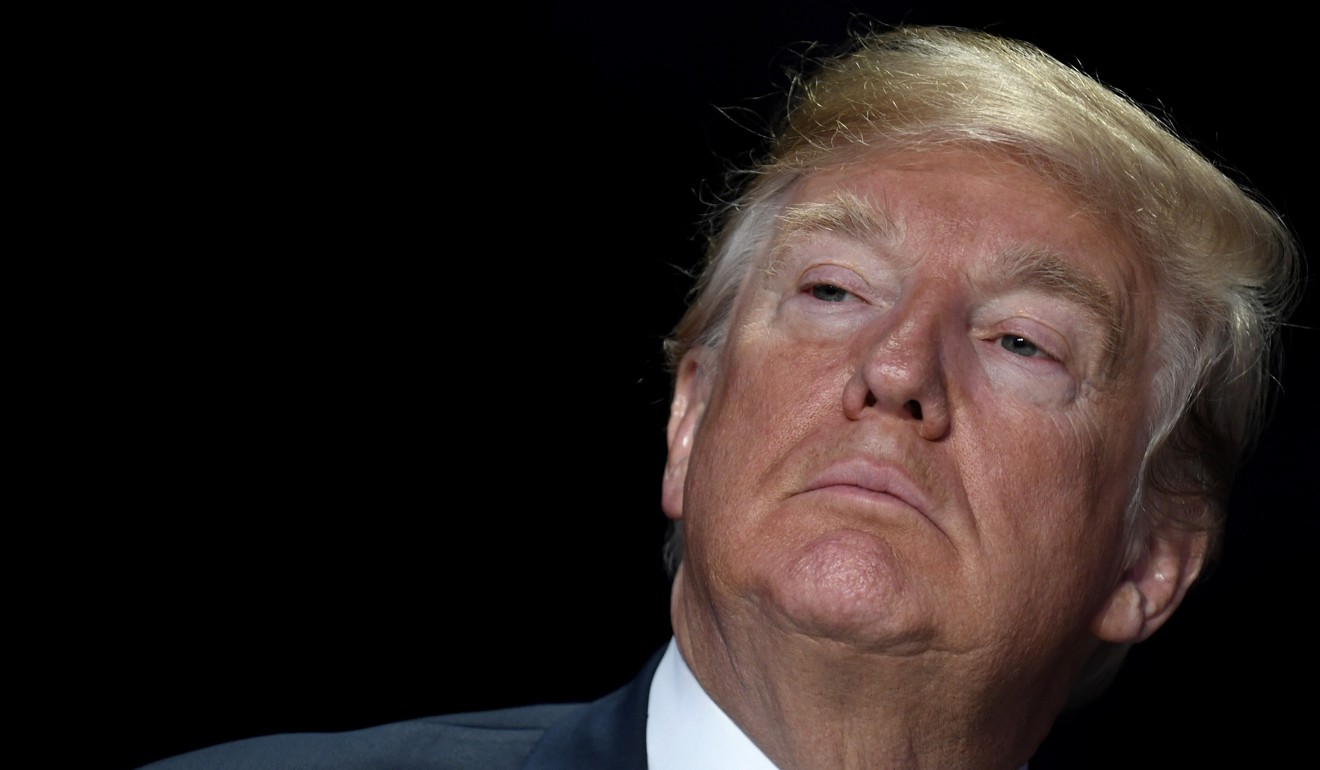
Combined with the party’s December tax cut bill, the burst in military and other spending would put the Republican-controlled government on track for the first US$1 trillion-plus deficits since President Barack Obama’s first term.
That’s when Congress passed massive stimulus legislation to try to stabilise a down-spiraling economy.
“It’s too much,” said Pennsylvania Republican representative Scott Perry, a fiscal hawk.
The deal contains far more money demanded by Democrats than had seemed possible only weeks ago, including US$90 billion in disaster aid for Florida and Texas.
Some other veteran Democrats – some of whom said holding the budget deal hostage to action on Dreamer immigrants had already proven to be a failed strategy – appeared more likely to support the agreement than junior progressives elected in recent years.
The budget agreement would give both the Pentagon and domestic agencies relief from a budget freeze that lawmakers say threatens military readiness and training as well as domestic priorities such as combating opioid abuse and repairing the troubled health care system for veterans.
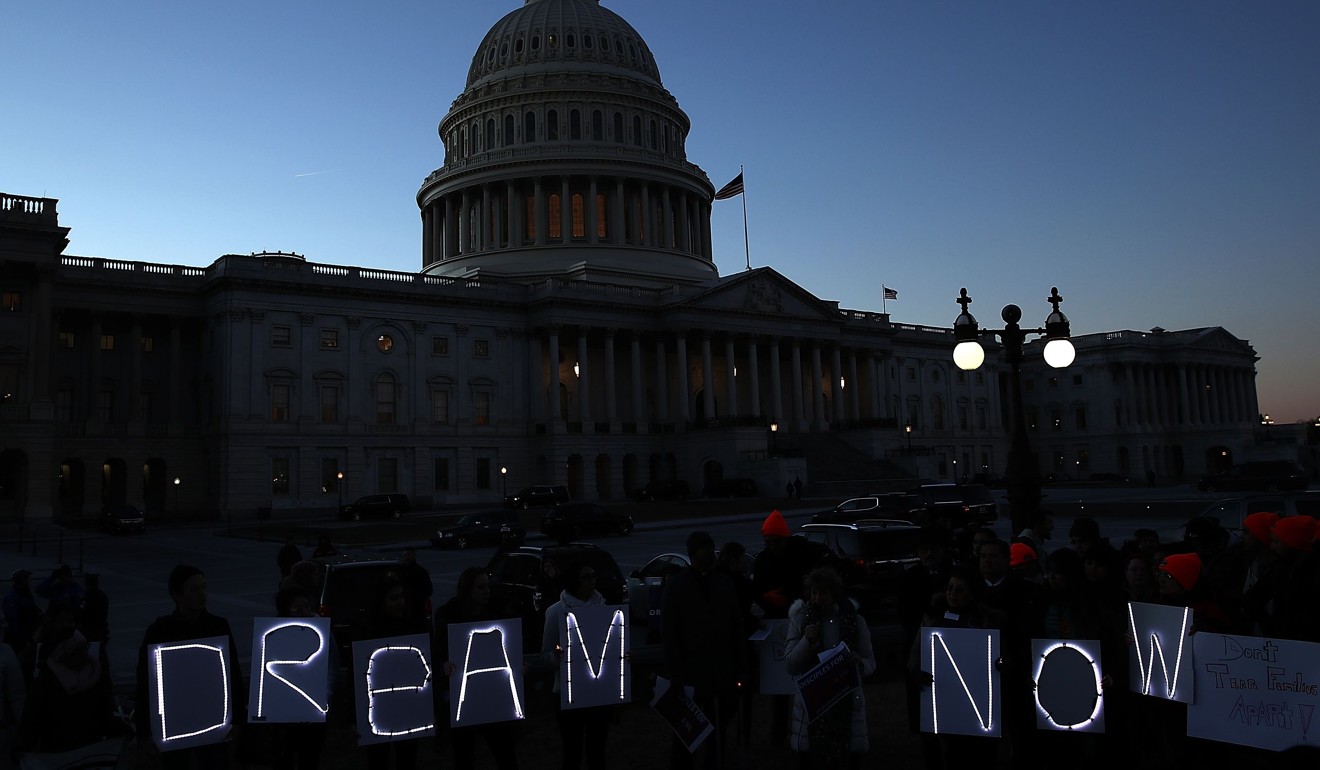
The core of the agreement would shatter tight “caps” on defence and domestic programmes funded by Congress each year.
They are a hangover from a failed 2011 budget agreement and have led to military readiness problems and caused hardship at domestic agencies such as the Environmental Protection Agency and the IRS.
The agreement would give the Pentagon an US$80 billion increase for the current budget year for core defence programmes, a 14 per cent increase over current limits and US$26 billion more than Trump’s budget request.
Non-defence programmes would receive about US$60 billion over current levels. Those figures would be slightly increased for the 2019 budget year beginning October 1.
The US$89 billion in disaster aid would bring the total appropriated in the wake of last year’s hurricane season to almost US$140 billion.
The agreement would increase the government’s borrowing cap to prevent a first-ever default on US obligations that looms in just a few weeks.
The debt limit would be suspended through March of 2019, Sanders said, putting the next vote on it safely past this year’s midterm elections.
McConnell officially unveiled the 652-page measure late Wednesday.
It contained previously unmentioned extensions of tax provisions, an array of fee renewals to partly defray the measure’s cost, and almost 400 pages worth of health provisions.


